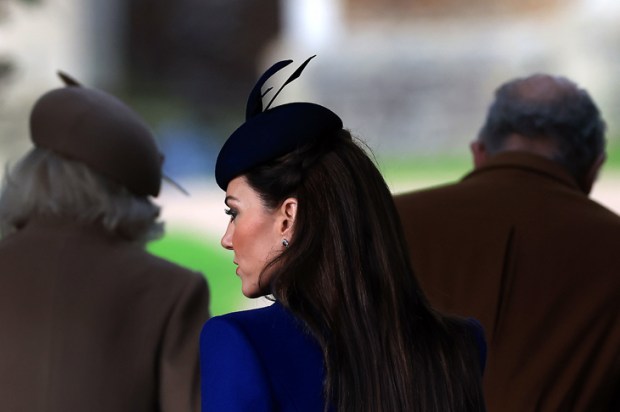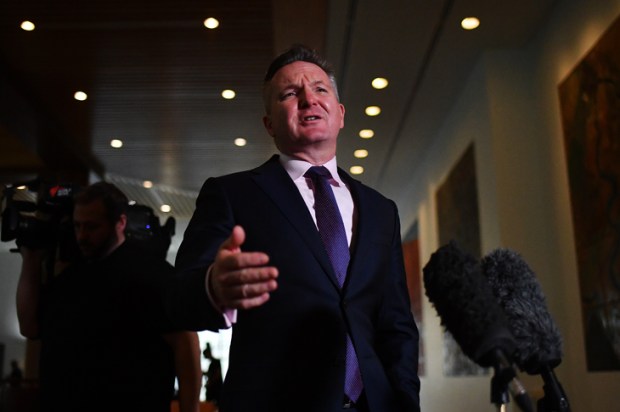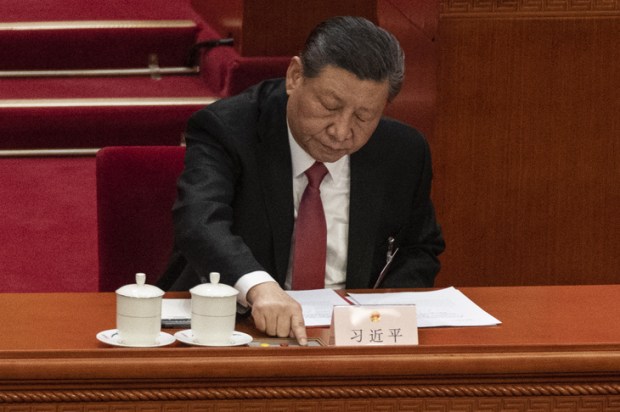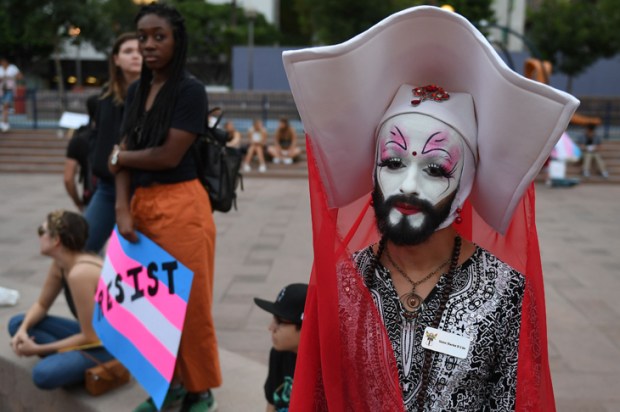When David de Carvalho, CEO of the Australian Curriculum, Assessment and Reporting Authority (ACARA) announced that he had given the national curriculum the ‘Marie Kondo’ treatment, he raised hopes. Had ACARA really thrown out all the meaningless mumbo jumbo? It seemed unlikely.
ACARA is a creation of the Rudd government, imbued with the Jacobin spirit of centralised social engineering. Its staff are generously remunerated but they write as if as they were paid by the word. Circumlocution is their lodestar.
Embarking on their latest effort provoked an unwelcome sense of déjà vu. Post-modern prolixity abounds. Children don’t read and write, they ‘construct meaning’ and ‘create texts’. ‘Critical perspectives are formed’ when they ‘make meaning from literature based on engaging with aspects of the text’.
In Italo Calvino’s masterpiece, If On A Winter’s Night A Traveller, the protagonist discovers that a book that he was looking forward to reading is defective, with a quire of 16 pages repeated over and over until the end. He is so infuriated that he flings the book on the floor but if he could, he says he would hurl it out of the house, the block, the city, the country, beyond the atmosphere, the stratosphere, beyond the point the galaxies have reached in their expansion, where space-time has not yet arrived, where it would be received by the not-being which has never been and will never be, to be lost in the most absolutely guaranteed undeniable negativity. ‘Merely what it deserves’, he concludes, ‘neither more nor less.’ The revised national curriculum inspires a similar sentiment.
There is nothing in it but the mouldy clutter of long-vanished Labor ministers. It proudly states that it builds on the goals of the Melbourne Declaration, a jamboree held in December 2008, when Labor power was at a zenith, with Julia Gillard the federal Minister for Education, and Labor governing every state and territory except for Western Australia in which a minority Coalition relied on the support of an independent, who was education minister. De Carvalho’s reference to Japanese organising consultant, TV host and international celebrity Marie Kondo fits in with the spirit of curriculum in which Year 3 students are meant to identify the effect on audiences of vertical camera angles and analyse the layout of advertisements. Yet the only thing that seems to have been successfully decluttered is any mention of books.
Take literacy, lauded as a ‘key idea’. We are told that the ‘literacy continuum incorporates two overarching processes: Comprehending texts through listening, reading and viewing; and Composing texts through speaking, writing and creating’. Why not declutter this verbiage and define literacy, as does the Oxford English Dictionary, as ‘the ability to read and write’. Teachers told ACARA that they wanted the curriculum to be clearer. Good luck with that. In kindergarten, they are told that children are meant to ‘read decodable and predictable texts, practising phrasing and fluency, and monitor meaning using concepts about print and emerging contextual, semantic, grammatical and phonic knowledge’. By Year 6 they can ‘select, navigate and read texts for a range of purposes, applying appropriate text processing strategies and interpreting structural features’. Perhaps next time, ACARA could set itself the task of writing a ‘decodable’ curriculum.
Beyond the gobbledygook, the real mischief is contained in three ‘cross-curriculum priorities’; Aboriginal and Torres Strait Islander Histories and Culture, Asia and Australia’s Engagement with Asia, and Sustainability. Teachers are meant to shoe-horn ideological homilies from these ‘priorities’ into every discipline. Each priority has an introductory statement that ‘describes how it is viewed in the curriculum’. In the Sustainability priority, for example, children studying English are meant to ‘develop the understanding and skills necessary to act responsibly and create texts that inform and persuade others to take action for sustainable futures’. Presumably, that means painting banners to take to the nearest Extinction Rebellion rally.
In Health and Physical Education ‘students develop their world view by exploring concepts of diversity, social justice and consumerism as these relate to the promotion and maintenance of health and wellbeing’. This sounds like another excuse for activism rather than being active.
In the indigenous priority, the curriculum says that ‘students will understand that contemporary Aboriginal and Torres Strait Islander communities are strong, resilient, rich and diverse’. Really? What if a student wants to discuss the high rates of alcoholism and violence in some Aboriginal communities? Is that allowed or is it wrong-think?
This is not education, it is indoctrination. It harks back to the idealised depiction of the proletariat in socialist realist paintings of the Soviet Union. Or the finale in Shostakovich’s 5th Symphony that evoked a Soviet commissar repeatedly beating someone with a stick and saying, ‘Your business is rejoicing.’
As part of the review, the curriculum was compared with countries such as Singapore, that repeatedly outperform Australia in international benchmarks such as the OECD’s Programme for International Student Assessment (PISA). In the most recent test in 2018, Australia continued its long decline, ranking 16th in reading, 29th in maths and 17th in science, whereas Singapore came second only to China, (which cheats by only including students from the provinces of Beijing, Shanghai, Jiangsu and Zhejiang).
All the international curricula gave a more prominent role to the development of core competencies and no other country had ‘cross-curriculum’ priorities harping on blatantly politicised topics such as sustainability.
The Singaporean curriculum was the simplest. The review found that it had decluttered its content by 30 per cent and exhibited ‘high-order rigour, especially in English, Mathematics and Science’. Given the results they achieve, why not just adopt it?
You would think that ACARA would be chastened by presiding over an historic decline in educational performance, but no. The public has been invited to comment on the curriculum but ACARA has ruled that the byzantine structure is inviolate and the holy trinity of cross-curriculum priorities cannot be touched.
Which makes it very simple for federal Education Minister Alan Tudge. He should do what Christopher Pyne should have done when he was first appointed Education minister in the first Abbott ministry in 2013. Abolish ACARA and abandon a national curriculum. Or in language ACARA can understand, declutter the lot. Now, that, as Ms Kondo would say, would spark joy.
Got something to add? Join the discussion and comment below.
Get 10 issues for just $10
Subscribe to The Spectator Australia today for the next 10 magazine issues, plus full online access, for just $10.
You might disagree with half of it, but you’ll enjoy reading all of it. Try your first month for free, then just $2 a week for the remainder of your first year.














Comments
Don't miss out
Join the conversation with other Spectator Australia readers. Subscribe to leave a comment.
SUBSCRIBEAlready a subscriber? Log in